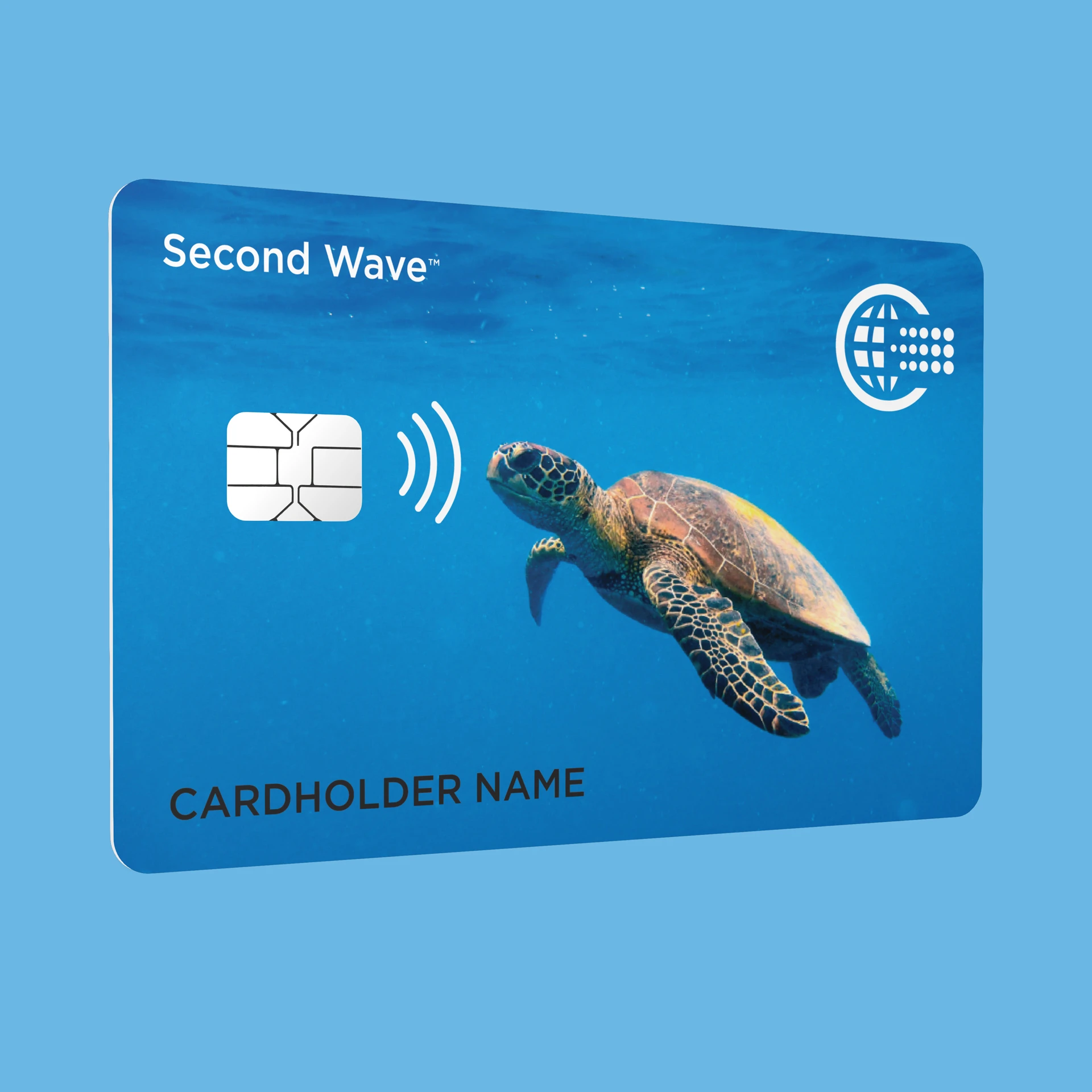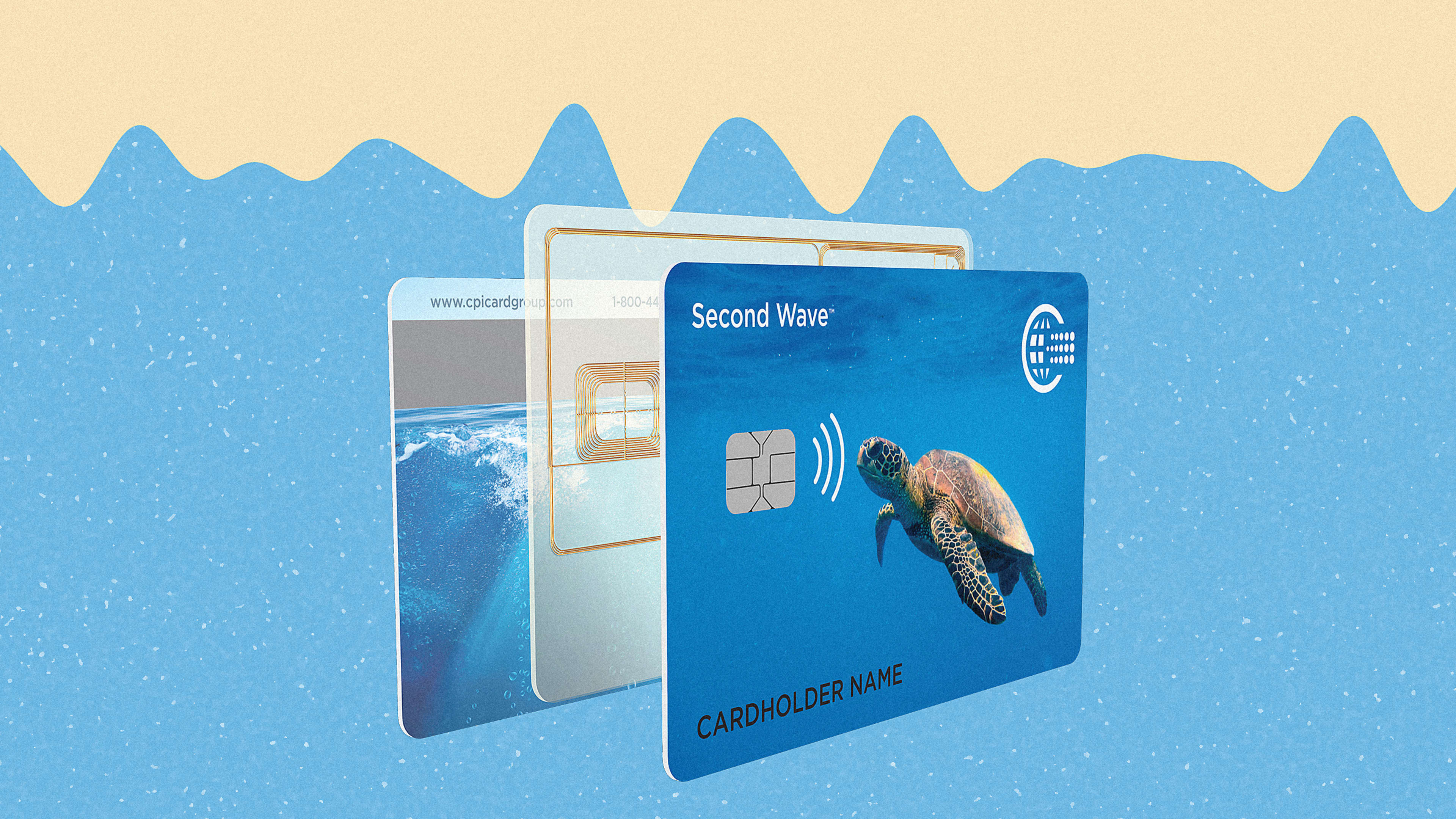Single-use plastic is responsible for somewhere between 4.8 and 12.7 million metric tons of plastic entering the ocean each year. We normally think of that as plastic bags, take-out containers, or bottled water. But there are some secret sources of plastic hiding in plain sight in your day-to-day life: Just take a look in your wallet. The Nilson Report, a publication that reports on the card and payment industry, has found that more than 6.4 billion payment cards are shipped around the world each year.
To help combat this problem, payment technology company CPI Card Group just announced the debut of their debit/credit cards made mostly from plastic that would have otherwise gone out to sea. Called Second Wave, these cards are meant to accomplish two goals—recycling plastic instead of bringing new synthetic waste into the world, and keeping more plastic trash from entering the ocean. (Besides the ocean-bound plastic, the cards are made of PVC, along with the chips and metal necessary for them to function.)
CPI finds the plastic it uses for these cards by collecting synthetic litter from areas that are highly likely to feed into the water. “Recovered ocean-bound plastic is typically recovered within 50 kilometers of a seashore, or near streams and rivers that lead to the ocean, in countries or regions that lack adequate waste management infrastructure,” Jason Bohrer, CPI’s SVP and general manager, says in an email.

In a recent study commissioned by CPI but performed by an independent research firm, 96% of those surveyed said they were concerned about the amount of plastic waste making it into the ocean. But while 83% liked the idea of a card made with plastic that would have otherwise ended up in the water, only 58% were truly committed to the invention. These were the people who said they would switch financial institutions (if they provided the same services and benefits) that offered the more environmentally sound card.
“We estimate that for every 1 million Second Wave payment cards produced, over 1 ton of plastic will be diverted from entering the world’s oceans, waterways, and shorelines,” says Bohrer. Sounds like a compelling enough reason to switch banks.
Recognize your company's culture of innovation by applying to this year's Best Workplaces for Innovators Awards before the extended deadline, April 12.
